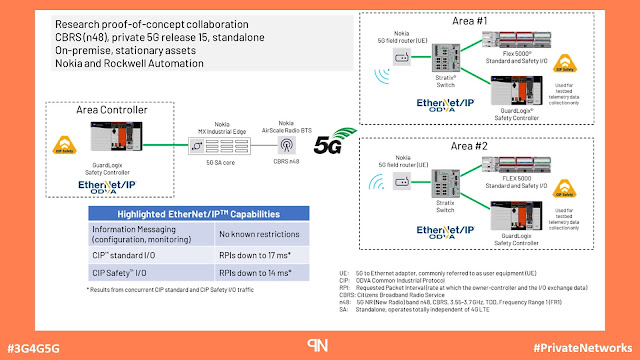Private 5G networks are becoming a cornerstone of industrial digital transformation, promising enhanced automation, reduced latency, and greater operational agility. A notable example of this evolution is the growing collaboration between Nokia and Rockwell Automation, which is aimed at delivering reliable and high-performance private 5G standalone networks tailored for industrial environments.
By combining Nokia’s deep wireless expertise with Rockwell’s operational technology and industrial automation capabilities, the partnership addresses longstanding challenges in integrating cellular technology into manufacturing and heavy industries. These include the complexity of deploying and managing 5G infrastructure, ensuring compatibility with existing industrial systems, and bridging the gap between information and operational technologies.
At the heart of their approach is a joint go-to-market strategy that focuses on bringing industrial-grade private wireless solutions into real-world use. This includes preconfigured network setups designed around the needs of automation workloads, making it easier for industrial customers to deploy 5G without the burden of in-house wireless expertise. The partners also collaborate closely on identifying new requirements and developing targeted features that enhance performance and align with evolving factory needs.
A key enabler for the United States market is the use of Citizens Broadband Radio Service (CBRS) spectrum. This lightly licensed spectrum supports cost-effective and flexible deployment models, allowing enterprises to start with smaller allocations and scale up as needed. Nokia’s industrial 5G solutions, including the AirScale radio access components and the MX Industrial Edge core, are deployed in testbeds using the CBRS n48 band. These networks have been validated for use with Rockwell’s EtherNet/IP protocols, ensuring reliable and deterministic communication critical to real-time industrial control.
Performance tests demonstrated the capability of private 5G standalone networks to support applications requiring low latency and jitter, such as safety input and output systems, mobile robotics, and untethered stationary equipment. The setup was intentionally straightforward, with minimal network configuration required, showing that out-of-the-box integration is achievable with the right technology stack.
Outside the US, where licensed spectrum is typically required for private networks, the performance of Nokia’s solutions in the CBRS band is comparable with results achieved in other sub-6 GHz bands globally. This makes the Nokia-Rockwell model highly replicable across markets.
The partnership is also contributing to a broader shift in how manufacturers evaluate connectivity options. While Wi-Fi remains useful for certain applications, many industrial scenarios require more robust mobility, deterministic performance, and security than unlicensed wireless networks can offer. Private 5G brings the predictability and scalability necessary for advanced applications like connected workers, automated guided vehicles, and edge-to-cloud data workflows for artificial intelligence and machine learning.
An RCR Wireless interview by Sean Kinney discussing how Nokia and Rockwell Automation are working together on industrial transformation is embedded below:
Looking ahead, both companies are continuing to expand their collaboration through joint testing, including live deployments at customer sites. These efforts not only validate existing use cases but also explore how the network can evolve to meet future requirements, such as ultra-low latency and higher levels of automation. By aligning product development with real industrial needs, the Nokia and Rockwell partnership is shaping a new model for how private 5G can unlock value in manufacturing and beyond.

Comments
Post a Comment